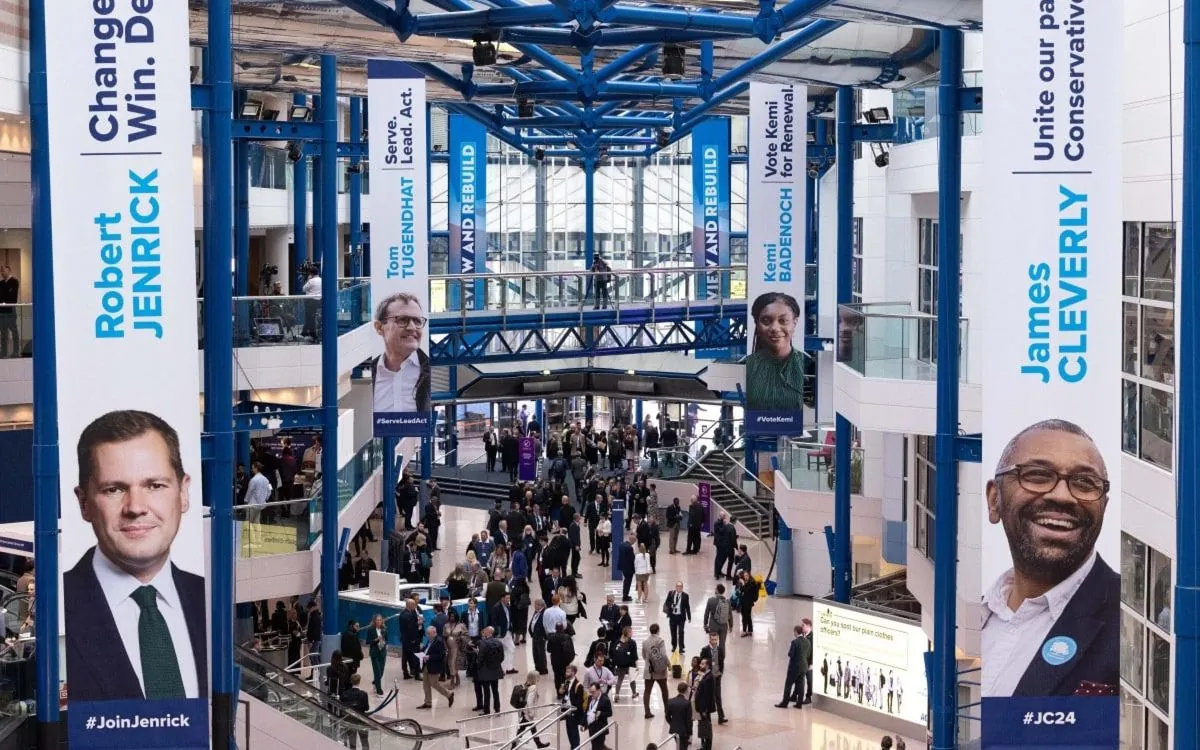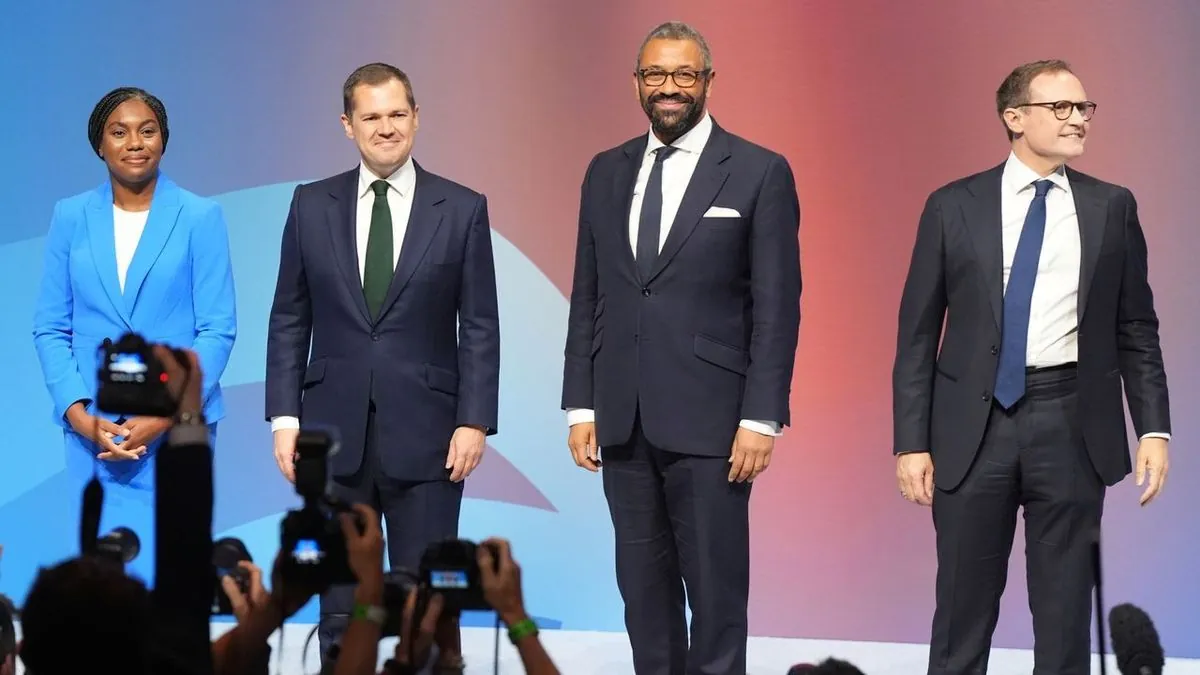Tories Ponder Future at Conference After Historic Defeat
Conservative Party grapples with direction post-election loss. Leadership race and policy debates dominate conference as members reflect on 14-year tenure and chart path forward.

In the wake of a historic electoral defeat three months ago, the Conservative Party gathered in Birmingham for its annual conference to assess its future. The event, officially themed "Review and Rebuild," saw party members grappling with the aftermath of their worst performance in modern history, following 14 years in power.
The conference, held in October 2024, came after the Labour Party's landslide victory in July, ending the Tories' long tenure. This period had been marked by significant events such as Brexit, pandemic-related controversies, and economic challenges.
Party members found themselves at a crossroads, debating whether to shift rightward or maintain a centrist approach. Some advocated for a focus on issues like immigration and traditional values, while others emphasized a return to core conservative principles of limited government and low taxation.
The leadership race took center stage, with four candidates vying to replace outgoing leader Rishi Sunak. The contenders - Kemi Badenoch, James Cleverly, Robert Jenrick, and Tom Tugendhat - presented their visions for the party's future.

Cleverly, drawing on his extensive government experience, pledged to address immigration, a persistent challenge despite previous Tory governments' efforts. Badenoch garnered attention with controversial statements on civil service efficiency and maternity leave policies. Jenrick proposed leaving the European Convention on Human Rights to "secure our borders" and questioned the UK's net-zero carbon emissions target. Tugendhat emphasized his military background as a testament to his leadership capabilities.
The conference also saw brief appearances by former leaders. Liz Truss, whose 49-day tenure as prime minister in 2022 was notably short, defended her legacy and suggested the party would have fared better under her continued leadership.
Discussions at the conference touched on various issues, including the state of the British economy, the role of government, and concerns about "wokery." Jacob Rees-Mogg, now a presenter on GB News, criticized the concept of a "green economy" and expressed concerns about the size of the state.
"We didn't take control of the levers of power."
The Conservative Party, founded in 1834, now faces one of its most significant challenges. With a membership of around 172,000 as of 2019, the party must navigate a changing political landscape. The conference reflected on the party's recent history, including five different prime ministers since 2016 and the complexities of Brexit.
As the Conservatives reflect on their 14-year tenure and recent electoral defeat, they must address key issues such as the UK's record-high net migration of 606,000 in 2022 and public sector spending at about 45% of GDP in 2022-2023. The party's ability to adapt to these challenges while maintaining its core principles will be crucial in shaping its future and potential return to power.


































